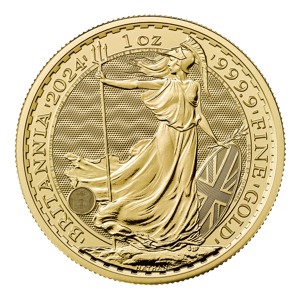Tavex uses cookies to ensure website functionality and improve your user experience. Collecting data from cookies helps us provide the best experience for you, keeps your account secure and allows us to personalise advert content. You can find out more in our cookie policy.
Please select what cookies you allow us to use
Cookies are small files of letters and digits downloaded and saved on your computer or another device (for instance, a mobile phone, a tablet) and saved in your browser while you visit a website. They can be used to track the pages you visit on the website, save the information you enter or remember your preferences such as language settings as long as you’re browsing the website.
| Cookie name | Cookie description | Cookie duration |
|---|---|---|
| tavex_cookie_consent | Stores cookie consent options selected | 60 weeks |
| tavex_customer | Tavex customer ID | 30 days |
| wp-wpml_current_language | Stores selected language | 1 day |
| AWSALB | AWS ALB sticky session cookie | 6 days |
| AWSALBCORS | AWS ALB sticky session cookie | 6 days |
| NO_CACHE | Used to disable page caching | 1 day |
| PHPSESSID | Identifier for PHP session | Session |
| latest_news | Helps to keep notifications relevant by storing the latest news shown | 29 days |
| latest_news_flash | Helps to keep notifications relevant by storing the latest news shown | 29 days |
| tavex_recently_viewed_products | List of recently viewed products | 1 day |
| tavex_compare_amount | Number of items in product comparison view | 1 day |
| Cookie name | Cookie description | Cookie duration |
|---|---|---|
| chart-widget-tab-*-*-* | Remembers last chart options (i.e currency, time period, etc) | 29 days |
| archive_layout | Stores selected product layout on category pages | 1 day |
| Cookie name | Cookie description | Cookie duration |
|---|---|---|
| cartstack.com-* | Used for tracking abandoned shopping carts | 1 year |
| _omappvp | Used by OptinMonster for determining new vs. returning visitors. Expires in 11 years | 11 years |
| _omappvs | Used by OptinMonster for determining when a new visitor becomes a returning visitor | Session |
| om* | Used by OptinMonster to track interactions with campaigns | Persistent |
| Cookie name | Cookie description | Cookie duration |
|---|---|---|
| _ga | Used to distinguish users | 2 years |
| _gid | Used to distinguish users | 24 hours |
| _ga_* | Used to persist session state | 2 years |
| _gac_* | Contains campaign related information | 90 days |
| _gat_gtag_* | Used to throttle request rate | 1 minute |
| _fbc | Facebook advertisement cookie | 2 years |
| _fbp | Facebook cookie for distinguishing unique users | 2 years |
Gold Coins and Capital Gains Tax: A Guide

Investing in gold coins can be both a rewarding and complex endeavour, especially when it comes to understanding the tax implications. Gold coins, often seen as a safe haven investment, come with their own set of tax responsibilities, primarily revolving around capital gains tax.
Whether you’re a seasoned investor or just starting, grasping the nuances of capital gains tax on gold coins is crucial for maximising your investment returns and staying compliant with tax laws.
What Are Gold Coins?

Gold coins are precious metal coins made predominantly of pure gold. They come in various forms, including bullion coins like the British Britannia, Austrian Philharmonic, American Gold Eagle, the Canadian Gold Maple Leaf, and historical coins such as the British Sovereigns.
These coins are valued not just for their gold content but also for their historical and collectible value.
Understanding Capital Gains Tax

Capital gains tax is a tax on the profit realised from the sale of a non-inventory asset
This includes stocks, bonds, real estate, and precious metals like gold.
The tax applies to the difference between the purchase price and the selling price of the asset. In the context of gold coins, this means the profit made when you sell your gold coins for more than you paid for them.
How Capital Gains Tax Applies to Gold Coins

Why Gold Coins Are Subject to CGT
Gold coins, being a form of tangible personal property, are usually subject to CGT when sold at a profit. This is similar to selling other investments or assets including stocks or real estate. When it comes to gold coins, the IRS treats them as collectibles, which subjects them to specific tax rules.
CGT Implications for Gold Investors
For gold investors, understanding CGT is vital. It can affect your investment strategy and the timing of your purchases and sales. However, certain gold coins are exempt from CGT, providing a significant tax advantage.
The primary distinction is between short-term and long-term capital gains. If you sell your gold coins within one year of purchase, the profit is considered short-term capital gains tax and is taxed at your ordinary income tax rate. If you hold the coins for more than a year, the gains are long-term and taxed at a maximum rate of 28%.
Exempt Gold Coins

Criteria for Exemption
Gold coins are typically exempt from CGT if they meet specific criteria set by the tax authorities.
These often include purity standards, legal tender status, and their recognition as investment-grade gold
Legal Framework
The legal framework governing these exemptions varies by country. It’s important to understand the specific regulations in your country of residence.
UK Exempt Gold Coins

Gold coins produced by the Royal Mint benefit from being exempt from Capital Gains Tax (CGT)
Sovereign Coins
In the UK, British Sovereign coins are exempt from CGT. These coins are legal tender and have a historical significance, making them a popular choice for investors.
Britannia Coins
Britannia coins are also exempt from CGT in the UK. These coins are recognised for their high purity and are issued as legal tender by the Royal Mint.
Calculating Capital Gains on Gold Coins
Determining the Cost Basis:
The cost basis is the original value of the gold coins, including the purchase price and any associated costs such as broker fees.
Calculating the Selling Price:
The selling price is the amount you receive from selling the coins (or selling an asset) from reputable dealers such as Tavex.
Example Calculation:
If you bought gold coins for $1,000 and sold them for $1,500, your capital gain is $500.
Sell your investment gold and silver to us at Tavex here.
Exemptions and Special Considerations

Potential Exemptions:
Certain circumstances might allow for exemptions or reduced tax rates, such as specific thresholds for collectibles.
Special Cases:
Inherited gold coins may have different tax implications, often allowing the heir to use the market value at the date of inheritance as the cost basis.
Record Keeping for Gold Coin Transactions
Maintaining accurate records of your gold coin transactions is vital. This includes receipts, purchase dates, and any associated costs. Proper record-keeping ensures you can accurately calculate your capital gains and substantiate your tax returns.
Key Takeaways
Investing in gold coins can be both a rewarding and complex endeavour, especially when it comes to understanding the tax implications. Gold coins, often seen as a safe haven investment, come with their own set of tax responsibilities, primarily revolving around capital gains tax.
Understanding the capital gains tax on gold coins is essential for any investor in precious metals. By knowing the rules, maintaining accurate records, and seeking professional advice, you can minimize your tax liability and maximise your investment returns.
Gold coins, such as British Sovereigns and Britannias in the UK, offer significant tax advantages due to their exemption from CGT. This exemption can make a substantial difference in your overall investment strategy and returns.
Additionally, understanding how to calculate your gains, the criteria for exemptions, and the importance of record-keeping will help you navigate the complexities of CGT.


















